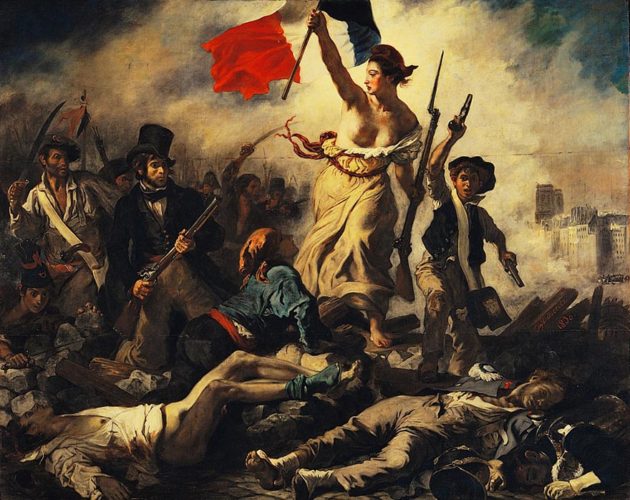France: rebellions, referendums and regicides
By Pierre Scordia
In France, an elite, seemingly beyond reproach, made up of liberals and former socialists, has attempted to reform the country – to their credit - by transforming it into a paradise for start-up and big capital, hoping to attract more investment and reduce both unemployment and the deep malaise that plagues French society.
Macron, having destroyed the socialist party, divided the party of the mainstream right and neutralised the rebellious railway workers of the SNCF, no doubt imagining that he was headed for an extraordinary destiny as a kind of 21st century Anglophile Bonaparte.
But those few disdainful slips of the tongue, his Jupiterian attitude, the escapades of his bodyguard, together with a couple of presidential selfies with thugs on the island of St Martin have tarnished his image and shattered the presidential myth already significantly weakened by the very unpopular former French president, François Hollande. In September, alarm bells rang as two popular ministers left the presidential ship before it sank: Nicolas Hulot, Minister of the Environment (a former TV presenter) and the Minister of the Interior, Gérard Collomb (former mayor of Lyon).
To be honest, nobody really foresaw the Yellow Vests movement coming and it is no easy task to contain this social unrest. Les Gilets Jaunes are a powerful yet dispersed movement. When you live in England, as I do, on arriving in France you get the impression that a national insurrection is taking place. By procrastinating, Macron and his government have opted for the worst policy: one that satisfies no one and opens a Pandora's box.
It is hard not to be pessimistic about the future of the country because unlike Britain, France is no longer sovereign with regard to her financial and economic policies. Paris has no choice but to respect austerity and the budgetary discipline imposed by Brussels. A member of the Eurozone, France must honour her commitments towards her European partners. The French can no longer resort, as in the past, to increased spending and devaluing their currency in order to boost exports and pacify society. We are now facing the full brunt of a cultural economic clash between Germanic and Latin Europe. As we have witnessed with Greece, it is impossible to get out of the Euro because the financial costs and risks are way too high.
A bereft French government is now trying to gain a little time by opening a national debate on referendum initiatives, to lead the country towards a more direct democracy, because the Yellow Vests have lost trust in their representatives. Alas, it seems - to use one of Macron’s favourite expressions - that what we are dealing with here is but “fairy dust” (poudre de perlinpinpin). For example, at the end of this year, a Nantes-based association, called Bretagne Réunie (Reunited Brittany) collected 105,000 signatures on a paper petition from voters in the Loire-Atlantique department (more than 10% of the electorate) for a people’s vote to be held on the question of the administrative reunification of Brittany, for their département to join the Breton region, as this is permissible within the law up until 1st March 2019. (The Pétain regime took Nantes, the former Breton capital, away from Brittany in 1941 and different French governments reinforced this arbitrary decision in 1956 and 2015, keeping Nantes part of a new artificial region called Pays de la Loire, not to be confused with the beautiful Loire Valley region).
Let us consider that for a national referendum to take place in Switzerland, 100,000 signatures are required and in Italy, 500,000. In the midst of the Yellow Vests crisis, this huge petition in the historic city of Nantes and its surroundings has been completely ignored by the French authorities thanks to a sleight of hand of the local socialist president of Loire-Atlantique, Philippe Grosvalet. If we look closely at this ongoing drama, we notice that the French system operates vertically; everything is decided in advance by a hyper-centralised power in Paris in combination with a very efficient network of cronyism at a local level.
La République, as the French elite love to call their country, is in fact governed by a patrician cast, reluctant to countenance any change in their governance. Most French leaders are énarques, they all graduated from the École Nationale d’Administration. It would perhaps have been wiser to announce, in parallel with the €100 a month increase in the minimum wage from 2019, a drastic cut in their own salaries and shameful expenses along with an end to their many costly privileges. In a time of budget cuts and nationwide struggle, this might have gone some way to appeasing a population trapped in a cycle of poverty, on the point of claiming the head of the republican monarch.
Unlike in Britain where it is Parliament that triggers the fall of executive power, in France street protests can initiate the downfall of an authoritarian head of state, to put in place a new and fairer constitution.
FORMIdea France, 1st January 2019. Lire cet article en français.




